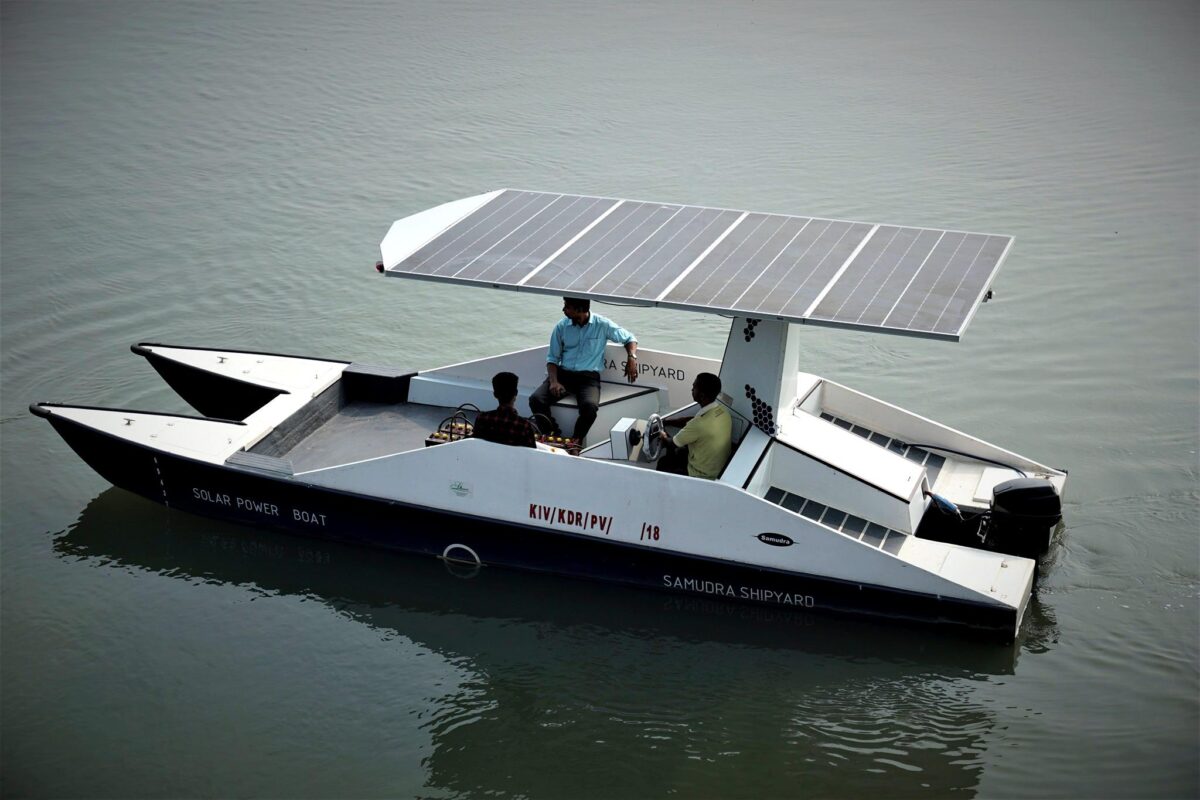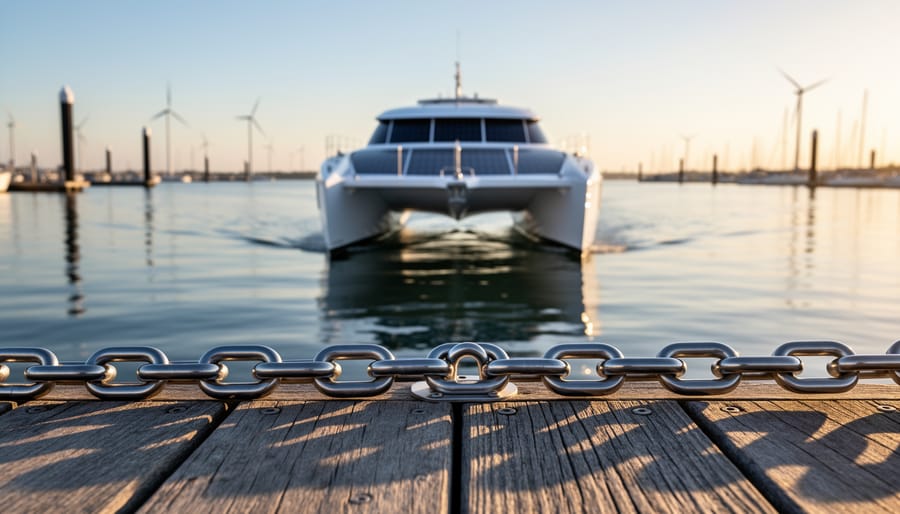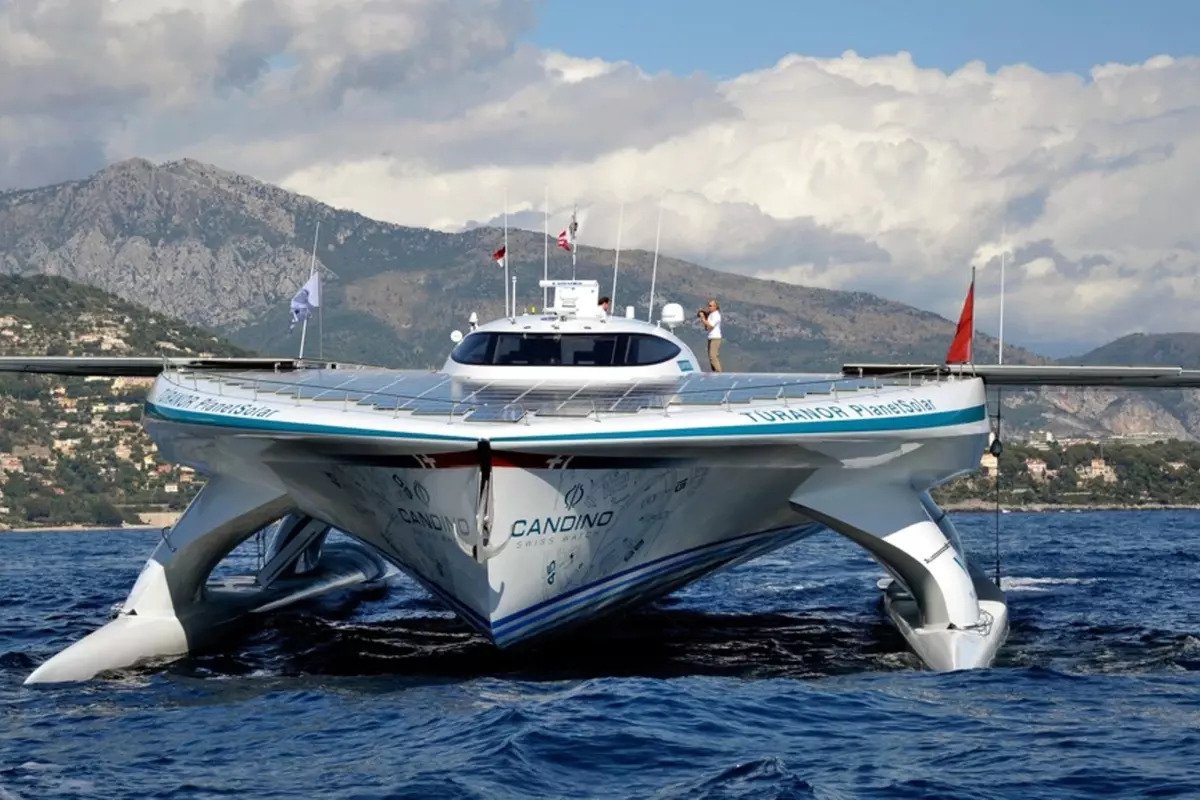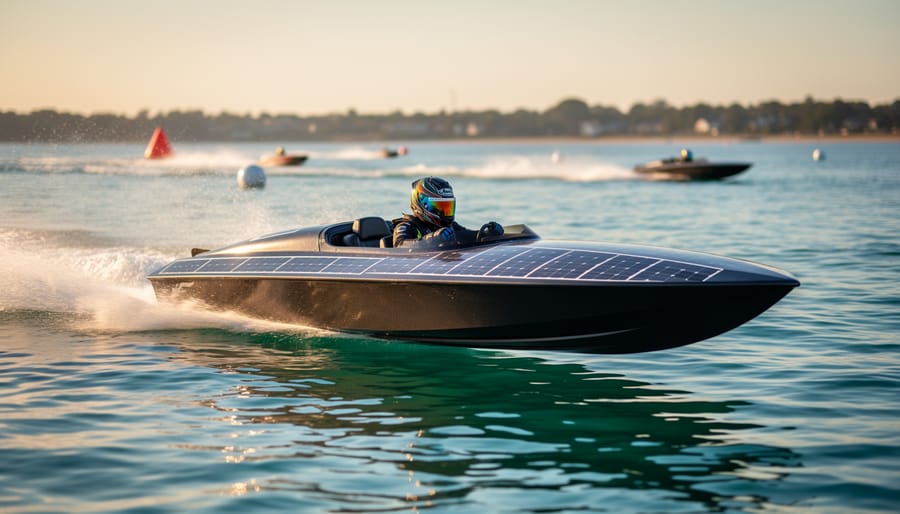Technology for solar panels and rechargeable batteries has advanced significantly in recent years. Panels are more effective, lighter, and stronger.
Batteries nowadays are lighter, smaller, and more efficient than they were in the past. Batteries and solar panels cost less and last longer than they once did.
Ultimately, the creation of solar yachts has moved from the realm of idealists’ imaginations to the mainstream due to these technological advancements and a rising interest in environmentally responsible sailing.
Understanding How Solar Boats Operate
Solar energy is used by solar boats to run their engines, navigational equipment, onboard electronics, and other appliances. With structural modifications to meet the special requirements and difficulties of a marine environment, the solar system functions largely in the same way as a solar system on a house or RV.
A charge controller on the boat manages the flow of electricity to a bank of rechargeable (often lithium-ion) batteries after solar power from the sun is captured by solar panels mounted on the vessel.
Electric motors, navigation systems, and appliances receive electricity from the batteries via an inverter, which changes direct current (DC) to alternating current (AC). Most appliances run on AC, including kettles, microwaves, and hair dryers.
Every boat can install a solar system to convert it to a hybrid or add a small amount of renewable power. Solar energy is a terrific method to cut down on carbon emissions, save money on fuel, and extend the amount of time you can go without refueling.
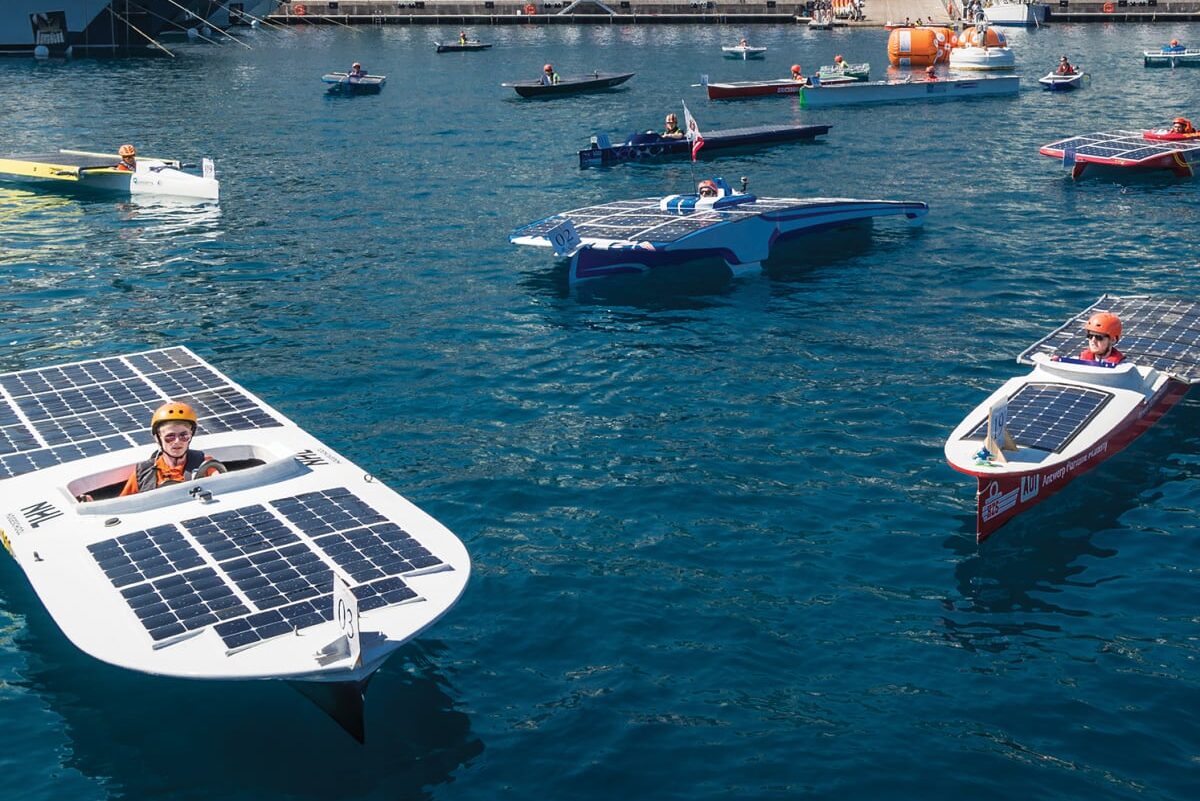
Advantages of Using Solar Boats
There are some fantastic advantages to consider if you want to purchase a solar boat specifically built and developed for solar sailing, and they extend beyond the use of renewable energy and reduced carbon emission.
1. Less fuel use
The boat can use diesel generators in an emergency, but this is not a requirement for regular sailing or energy production.
2. No engine
Since there is no engine, the boat doesn’t produce noise. Plus, there are no diesel emissions.
3. No pollution
The boat doesn’t cause pollution through carbon dioxide emissions. It also won’t leak oil or fuel.
4. Extra room
Conventional engines take up a lot of space. With solar power, you can use the room intended for the engine to store other things.
5. Lower operating costs
Solar energy is free, so you will save from the initial investment and sporadic maintenance. This eliminates the need for continuing engine maintenance and fuel costs.
6. Less maintenance
You only need to clean the solar panels before using the boat. This will ensure the boat will run with no problem. Moreover, a solar system typically requires relatively little upkeep if properly installed.

